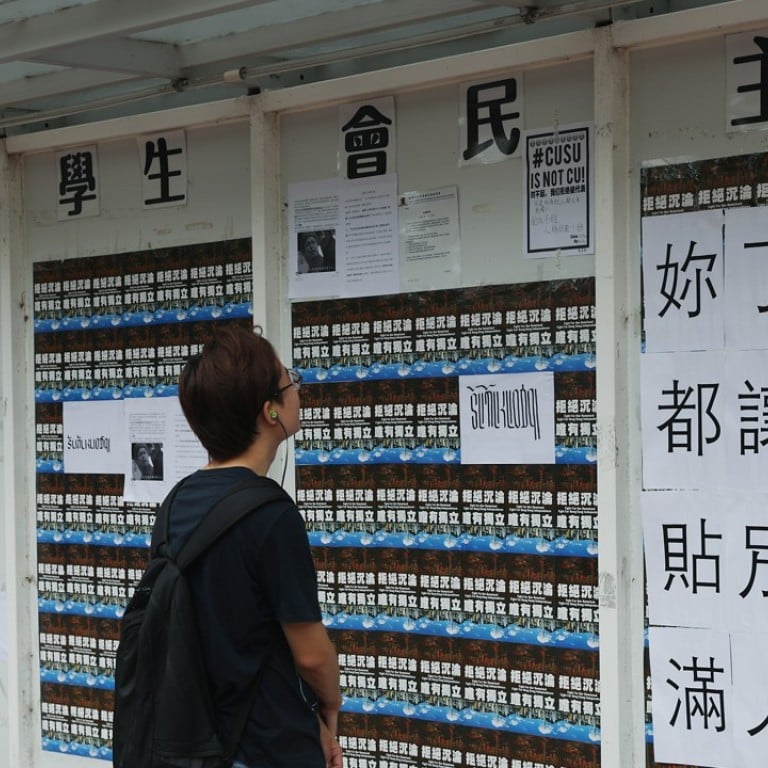
Debate on Hong Kong independence is welcome, but propaganda banners are not
Ho Lok Sang says discussions on ‘Hong Kong independence’ should not be taboo at the city’s universities, but dialogue must not be confused with propaganda that challenges Chinese sovereignty and jeopardises public interest in the city
Timothy O’Leary, head of the University of Hong Kong’s School of Humanities and chief of concern group HKU Vigilance, questioned the statement. “It would have been nice to know what argument they have for the banners being an ‘abuse’ of freedom of expression,” he posted on Facebook.
Carrie Lam voices support for universities’ plan to remove Hong Kong independence banners
The ‘democracy wall’ and debate over the freedom of expression
Showdown at Chinese University campus over posters and politics
Students interested in the issue can organise forums to discuss all dimensions of the subject. I would prefer bringing the debate out into the open rather than prohibiting all discussion, which will simply drive the thoughts underground.
Why all the fuss about Hong Kong independence?
Pro-Beijing lawmaker Lau Kwok-fan, also a Chinese University Council member, tried very hard to distinguish between discussion and propaganda.
However, neither former Chinese University student union president Tommy Cheung Sau-yin nor Hui Fung-ming, of the Education University Freedom of Speech Concern Group, appeared to get his point. Lau said they were discussing the subject, which was fine. But flying the banner of Hong Kong Independence on university campuses is not discussion: it is political propaganda challenging China’s sovereignty over the city.
Former student union leader on Hong Kong youth and mainland China
Hong Kong independence advocates have the ‘mentality of losers’
Actually, the 10 university presidents want campuses to be places for intellectual pursuit, free from divisive politics. So, by implication, a banner advocating disposing of “one country, two systems” and adopting “one country, one system” instead should also be removed.
Carrie Lam condemns university posters
Challenging China’s sovereignty over Hong Kong challenges the Chinese Constitution. Hong Kong enjoys privileges explicitly spelled out in the Basic Law, but is otherwise is still governed by the Chinese Constitution. Advocating Hong Kong independence will jeopardise the basic interests of its people, who desire a stable society.
Ho Lok Sang is dean of business at Chu Hai College of Higher Education

